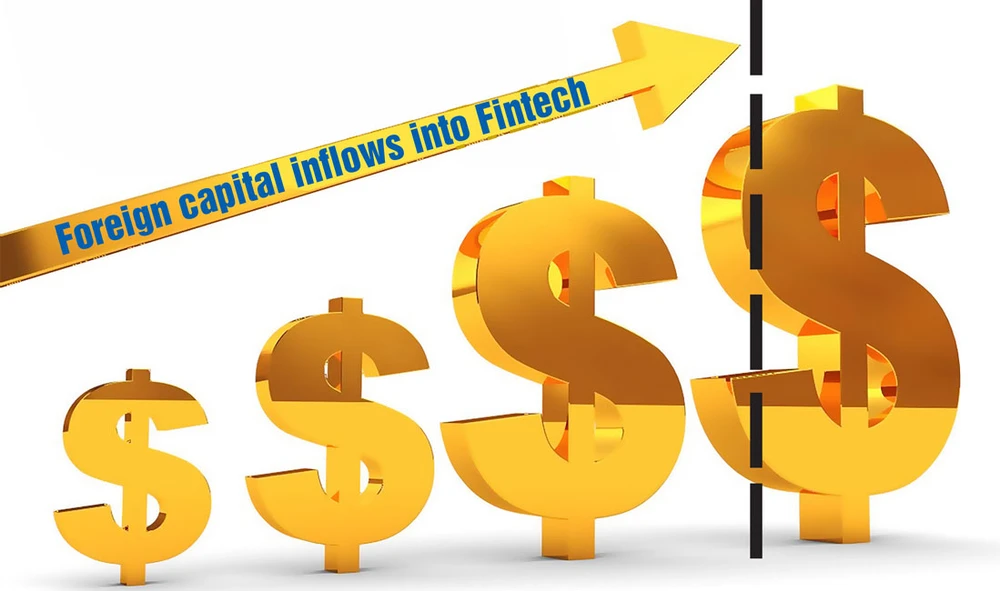
Worry about foreign capital domination
In the first nine months of 2019, the venture capital inflow into Vietnamese fintech businesses accounted for 36% of total capital, 0.4% higher than in 2018. However, this amount may decrease in future. The State Bank of Vietnam now plans to restrict the percentage of foreign investor capital to intermediary payment service providers at 49%, for both direct and indirectly owned companies.
Representatives of the intermediary payment company True Money said that such capital restriction is not appropriate, because intermediary payment services are new services, and these companies are still in their investment phase and are suffering losses. The ten-year license period is too short for them to recover all the capital.
Domestic investors are less interested in this sector and tend to shy away, while such regulations will also affect foreign investors as well, in the future. VNPT EPAY said that it is necessary to consider the impact on the development of intermediary payment companies when applying this regulation, while proposing to clarify the concept of indirect ownership on the basis of compliance with the regulations of Investment Law.
Currently, intermediary payment agencies are actively making recommendations, because most of these domestic companies have foreign partners holding a majority of the charter capital. For example, at VNPT EPAY, UTC Investment Group and Korea Omega Investment Corp owns 70% of shares. At Ngan Luong, MOL Access Portal Sdn. Bhd owns 50% of the shares. At True Money e-wallet, which was formerly a project of 1PAY JSC, born from the cooperation of MOG Vietnam and Ascend Thailand, 90% of capital has come from Ascend.
Actually, foreign investment flow is also increasingly pouring into these intermediary payment companies. Typically, Softbank Vision Fund and GIC Fund of Singapore poured nearly USD 300 mn into VNLIFE Group, the parent company of VNPAY. Currently, VNLIFE has joined the group of "unicorns", which are private start-ups with valuation of USD 1 bn or more.
In early 2019, a well-known fintech company called M-Services which is owned by MoMo wallet, also successfully raised USD 100 mn in Series C funding round from global private fund company Warburg Pincus. Previously, this company received an investment of USD 5.8 mn from Goldman Sachs and USD 28 mn from Standard Chartered Bank.
Options for foreign investors
In fact, the maximum ownership by foreign investors in credit institutions is 30% and in public companies it is 49%, while the majority of fintech enterprises exceed this limit. The State Bank of Vietnam explained that the reason for the present situation was that there are no regulations on conditions of foreign investors investing in intermediary payment companies. Therefore, investment registration agencies such as the Department of Planning and Investment in Hanoi and Ho Chi Minh City accepted proposals by some intermediary payment service providers to transfer shares to foreign investors with different ratio, based primarily on recommendations from these units.
In the Government draft decree on non-cash payments made in July 2018, the State Bank of Vietnam mentioned two options to manage this issue. Option one offers no limit on ownership of foreign investors in intermediary payment service companies and depends on each enterprise making their own decision in this matter. Option two approves foreign investor contribution of capital to intermediary payment companies, but specifies ownership percentage.
In the draft decree, the State Bank of Vietnam has clearly specified a limit of 49% on conditions for foreign investors in terms of funding organizations to ensure clarity and transparency. As payment made to intermediary companies involves banking, more caution is required to safeguard the national monetary policy.
Mr. Pham Thanh Duc, General Director of MoMo e-wallet, shared that in terms of state management, this regulation is necessary to protect Vietnamese fintech founders who hold controlling stake in enterprises.
As Mr. Duc suggested, “all businesses, including MoMo, are still in start-up stage, so they still face risks, and need much technology and capital from foreign investors. This capital can withstand more long-term risks than domestic short-term investment. Therefore, till the next two years, it is necessary to create conditions for businesses to develop and grow and the State may even consider controlling foreign investment in such fields”.
Dr. Nguyen Tri Hieu said that the percentage restriction to support intermediary payment companies will ensure the security of the monetary system. If the monetary security is seen as ensured for the next three years, the rate may be extended to over 49%.




















